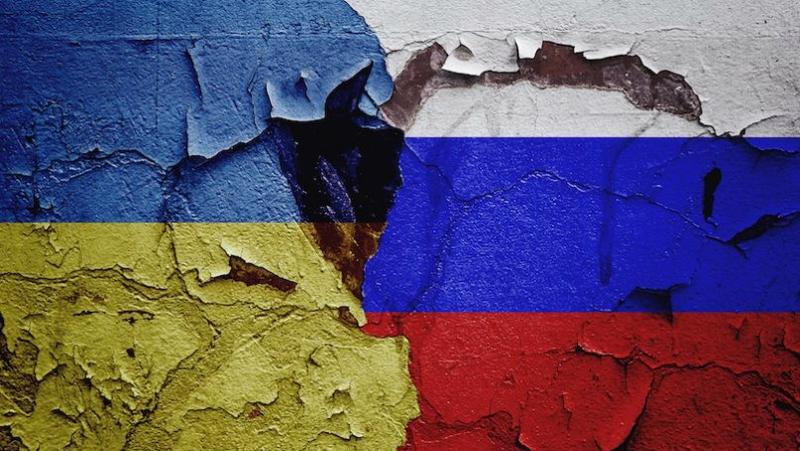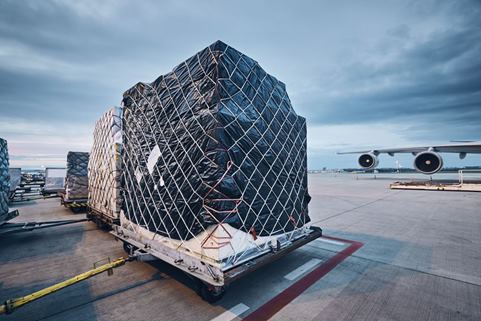
05/03/2022
U&I Logistics - In the context of the war in Ukraine, shipping and air freight were severely impacted, followed by the global supply chain, which was already frayed by the Covid-19 pandemic, which continues to face a significant challenge. It is unknown how long it will last due to supply chain disruptions from these two countries.

Regarding aircraft, after Russia authorized "a special military operation" against Ukraine, the Kyiv closed its airspace to civil flights because of concerns about the risk of airline safety. However, Russia is facing aircraft ban from the US and the European Union. Russia itself has responded to these sanctions with similar responses. Rising fuel prices combined with the need to detour to avoid Russian airspace have caused Ukraine and 36 other countries around the world to push the cost of air transport to a peak.
Freight forwarding and customs brokerage company Flexport said that many flights along some main trade routes travel time have been slower than before. For example, according to data from global flight tracking service Flightradar24, since the bans took effect, travel time on the New Delhi (India) - London (UK) route has been on average 8% slower than before. there.
With shipping, the UK and Canada ports block Russian ships while the European Union (EU) is also considering similar measures. At the same time, the 3 largest shipping lines in the world including MSC, Maersk, CMA CGM announced to suspend Russian deliveries to comply with sanctions. Not to mention, Maersk currently owns a 31% stake in Russian port operator Global Ports - which operates 6 ports in Russia and 2 ports in Finland. These shipping lines claim to be selective, transporting only essential goods such as food, medical equipment and humanitarian aid.
Not only that, Singapore-based carriers Ocean Network Express and Germany's Hapag Lloyd also made similar announcements, adding up to more pressure on on global freight operations, especially products such as platinum, metal, aluminum, sunflower oil, steel. This information is as a blow to the global supply chain of goods, which has been seriously frayed by the Covid-19 pandemic.

The auto industry is in limited production
The more intense the situation was, the more complex companies with global supply chains such as the auto industry are impacted immediately. Earlier this week, German automaker Volkswagen announced that it might be forced to reduce capacity at its main plant in Wolfsburg and some other plants in Germany because of car parts shortage. Meanwhile, BMW announced that it will limit production at plants in Germany, Austria and the UK.
After the move, the share prices of Volkswagen and BMW groups fell by more than 7% and nearly 5%, respectively, in the last trading session on March 1. Automakers could see shortages in several other key materials as Ukraine and Russia are both major sources of palladium and platinum (the main raw materials for catalytic converters) as well as aluminum, steel and chrome.
There is a shortage of raw materials in electronic components manufacturers
Another automotive sector, semiconductor production, has also stalled. Semiconductor companies are carefully monitoring the situation of neon, xeon and palladium - the materials needed to make chips. In addition, the wires industry is also affected. Because although Ukraine is not a center for auto production, it is a major supplier of automotive wiring in the world.
Leoni - a German company specializing in the supply of electrical wiring and other electrical components, with 100,000 employees globally, has operations in Ukraine. This company has a factory in the city of Stryi near the border of Poland and the city of Kolomyia. Production in both regions was disrupted because of the conflict between Russia and Ukraine. According to the announcement at the beginning of this March, Leoni has set up an around-the-clock to find solutions to compensate for production interruptions.
The food and beauty industries are under threat
Not only cars, even potato chips and cosmetics have the same concern when the large supply of sunflower oil from Russia and Ukraine is being cut off suddenly. If the conflict persists, the summer wheat harvest for export to Europe, North Africa and the Middle East for bread, pasta, canned food, etc. will also be threatened.
Rising food prices because of disruptions to global supplies could push the risk of social unrest in disadvantaged countries higher than ever. It can be seen that, in the face of the constantly escalating tension of both countries, the world will have to face more challenges in the future.
U&I Logistics